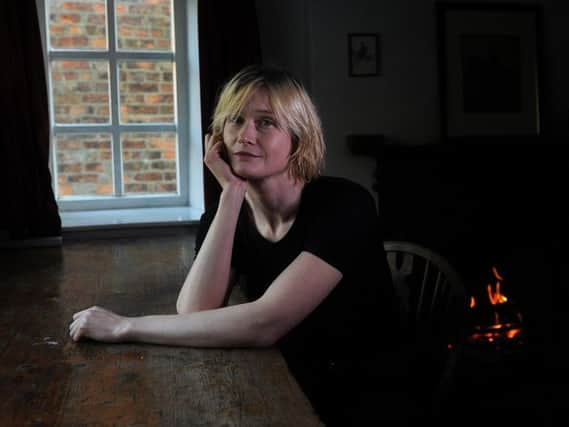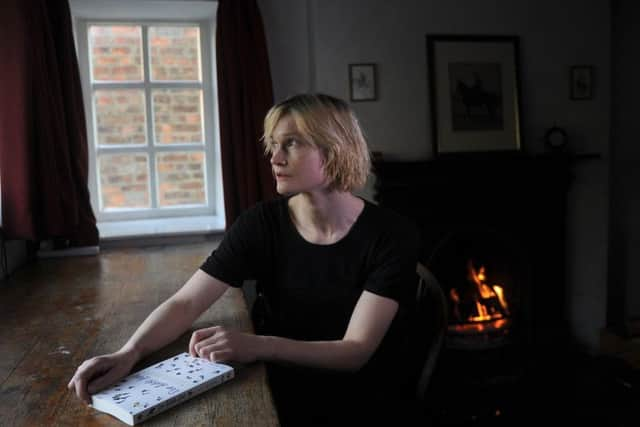How Yorkshire writer hopes to change early death rate among autistic people


It was a statistic that prompted Alex Ratcliffe into action; autistic people die on average 16 years earlier than the general population.
For the 36-year-old, who herself is autistic, it became the driving force for a book documenting the experiences of autistic adults across the world.
Advertisement
Hide AdAdvertisement
Hide AdHer aim? To promote understanding and acceptance of autism and to challenge the shocking disparity.


How a lack of understanding of autism led this mother and her son to set up their own web agency“One of the main reasons for the statistic is people being more likely to suffer from depression due to a lack of acceptance and then being more likely to consider taking their own lives,” she says. “The aim of the book is to reduce feelings of isolation and, in some small way, change this statistic.”
Four years after the figure was highlighted by national charity Autistica in a report calling for a national response to the scale of what it called the “hidden mortality crisis” in autism, Alex’s book Our Autistic Lives has been published.
She hopes to make people who are autistic feel less alone and realise there are others across the globe that can relate to their experiences.
Advertisement
Hide AdAdvertisement
Hide Ad“I want to promote autism acceptance and not just awareness,” she says, “recognition by other people that your neighbour could be autistic, or your colleague at work, and that it’s just a difference in someone and how they see the world.”
The book, which Alex left her leadership job in a special needs school to write, is a collection of more than 50 personal accounts from people around the world. “Rather than it being a book about autism, it is a book about different people that just happen to be autistic,” she says.
“It covers their day-to-day life, their routines, thoughts and experiences, their fears and their hopes. It is not a collection of feel-good stories or stories about how different people overcome autism, it is a snapshot into someone else’s life and brain.”
The individuals featured range in age from their 20s to their 80s and include those with official diagnoses and those who have self-diagnosed. The book is structured around their decades of experience of life.
Advertisement
Hide AdAdvertisement
Hide AdIn this way the book attempts to give an insight into the history of autism and signifies how gaining a diagnosis, or not, has changed people’s lives over time.
“Autistic people are the experts so I wanted them to put their views across. I think too often you get professionals who are not autistic trying to explain autism or how it feels and it was very much on purpose that there is no theory in the book or trying to explain anything.”
Alex, who lives on the North York Moors, says some of the personal accounts cover how feelings of isolation can build up and lead to depression and suicidal thoughts.
The book also explores how many adults have learnt to mask or hide their autism and the effect that doing so can have on wellbeing. “Many of the people in the book are in there fifties, sixties and seventies and were growing up when hardly anyone was being diagnosed,” Alex explains.
Advertisement
Hide AdAdvertisement
Hide Ad“It wasn’t understood and therefore they have just learnt how to fit in because they have had to, with society telling them how they should be... People who have masked for long periods of time can become so overwhelmed that they can’t function. It can be so exhausting and that exhaustion can possibly lead to feelings of depression.”
Alex, who has worked in special needs schools in the South of England and in North Yorkshire, knows how it feels to try to fit in. “The feeling of pretending to be someone I wasn’t just built up over the last three years I was in education,” she says.
One mother’s open letter to those who stop and stare at her two autistic sons“The feelings of dread with small talk, the feelings of dread of being in a staffroom with other people, the noise and people everywhere, all of that just got too much.”
Since leaving to write the book, she is now self-employed and working on her first novel, as well as assessing an adult distant learning autism course and supporting autistic students at the University of York. And she is also a professionally trained artist. “I enjoy communicating visually,” she says.
Advertisement
Hide AdAdvertisement
Hide Ad“I’m quite a sensory person. I like to feel everything and smell everything. Art has always really excited me. I like to get stuck in. A lot of my paintings I do with my fingers rather than a paintbrush. It’s very intrinsic.”
Alex says she first realised she had autism about four years ago. She self-diagnosed on the back of research and reading, after colleagues and her then-partner mentioned some of the characteristics.
“It was really from looking into it from a relationship point of view,” she says. “It wasn’t that I suddenly thought ‘that could be me’, it was really other people pointing it out.”
Alex says she has often felt overwhelmed and has had various obsessions throughout her life. As a child she recalls collecting things, including gathering a number of penpals who she felt compelled to write to each week. “At one point, I had over 100 different children writing to me and it was really stressful having all these letters,” she says.
Advertisement
Hide AdAdvertisement
Hide AdAs a child, she had no desire to develop friendships with other children and dreaded being expected to play with them. Her autism has affected her friendships and relationships.
“Something I have realised recently is that having a close friend who really understands you is very important. A feeling of being understood for autistic people in general helps with navigating the world.”
There’s many positives of having autism too, she hastens to add. For her, one of the greatest is how much enjoyment she can gain from sensory experiences. “Autism is just a different way of seeing the world,” she explains. “There’s lots of positives of it.”
Putting together the book has taken Alex nearly three years. Each contribution took up to 50 hours of work, with the accounts devised from answers to several lists of questions that she circulated to people across the globe. Their stories have been told anonymously.
Advertisement
Hide AdAdvertisement
Hide Ad“So much of the content is really personal. And they’re anonymous as well so that people who read the book, rather than thinking of one specific person, can think this could be my neighbour, my colleague, the guy sitting next to me on the tube.”
The book she has created is one she has always wanted to read, delving into the minds of autistic people to understand how each individual thinks and what their day-to-day life is like.
“I didn’t want it to be superficial or feel good stories or only show the negatives,” she says. “I really wanted all the really raw details. And each contributor was really on board with trying to change that statistic, with helping other people to feel less alone.”
Our Autistic Lives is available in paperback,e-book or audio form from Amazon and bookshops.